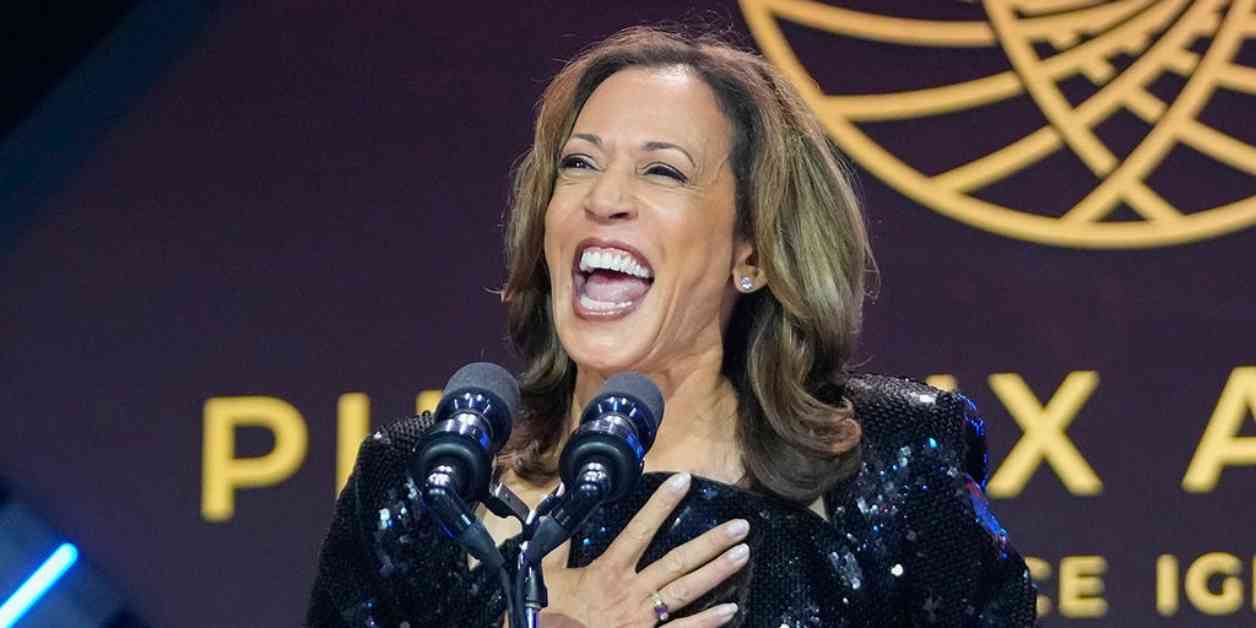Vice President Kamala Harris faced online mockery after debuting what some critics called a “new accent” at a Congressional Black Caucus event on Saturday night. During the Congressional Black Caucus Foundation’s Phoenix Awards Dinner in Washington, D.C., Harris greeted attendees with, “Hello to all of my Divine Nine brothers and sisters,” referencing historically Black sororities and fraternities, and “And to all my HBCU brothers and sisters,” in a speech that drew mixed reactions from the public.
Social media users, including those with large followings, quickly seized on the moment, with the account End Wokeness sharing a clip of Harris’s speech and labeling it as a “new accent.” This sparked a debate among users, with some questioning the authenticity of Harris’s accent and accusing her of pandering to Black voters.
Critics like Paul A. Szypula and Collin Rugg took to their platforms to express their disdain for Harris’s accent, with Szypula calling it “incredibly insulting to Black people” and Rugg highlighting how Harris had used different accents throughout her campaign. Columnist James Hirsen also chimed in, referring to Harris’s accent as “accent du jour,” further fueling the online backlash.
Harris’s upbringing in Canada was mentioned by some social media users who pointed out her ability to switch accents depending on the region she was campaigning in, raising questions about the authenticity of her speech patterns. Despite being a member of a historically Black sorority during her time at Howard University, Harris’s use of various accents has drawn criticism and skepticism from some quarters.
The online criticism of Harris’s accent is not new, as she previously faced backlash for seemingly adopting different accents while campaigning in Detroit and Pittsburgh, sparking questions about her authenticity and motives. White House press secretary Karine Jean-Pierre dismissed these concerns when questioned by Fox News’ Peter Doocy, emphasizing that Americans care more about substantive issues like the economy, healthcare, and lowering costs.
As Harris seeks to connect with Black voters, she faces scrutiny over her use of accents and the perception of her authenticity. President Joe Biden’s endorsement of Harris as the first Black and South Asian woman vice president, with hopes of her becoming the first female president, adds another layer to the ongoing debate surrounding her identity and communication style.
Moving forward, Harris’s engagement with Black communities, such as her upcoming sit-down with the National Association of Black Journalists and participation in a rally featuring prominent figures like Oprah Winfrey, will continue to be closely watched. Her efforts to appeal to diverse groups, including “Win with Black Women,” “White Women: Answer the Call,” and “South Asians for Harris,” highlight the complexity of her approach to coalition-building and outreach.
In conclusion, the scrutiny of Kamala Harris’s accent and communication style reflects broader questions about identity, authenticity, and political messaging in today’s polarized climate. As she navigates the challenges of connecting with diverse communities and addressing criticism, Harris’s ability to communicate effectively and authentically will remain a focal point for both supporters and detractors alike.




